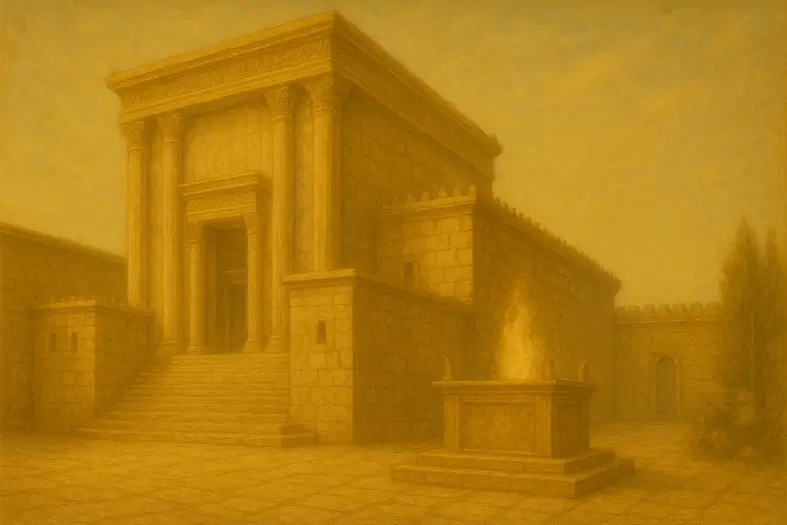


We are commanded to salt every korban, as a sign of permanence and covenant.
This mitzvah requires that all offerings on the Mizbeach be accompanied with salt. The Torah calls this “the salt of the covenant of your G-d,” symbolizing preservation, endurance, and the eternal covenant between Hashem and Israel. Salt does not decay but preserves, reflecting the unbreakable bond between Creator and His people.
Rambam codifies this requirement as a universal law for all korbanot, whether animal, bird, or meal offerings. Sefer HaChinuch explains that salt symbolizes permanence and incorruptibility, teaching that Hashem’s covenant is enduring. The Midrash adds that the “covenant of salt” recalls the separation of the upper and lower waters during Creation (Genesis 1:7), when the lower waters were promised that salt would forever ascend the altar.
The Talmud emphasizes that salting the sacrifices is not symbolic alone but a halachic requirement, without which the korban is incomplete. Ramban highlights that salt purifies, preserves, and binds, mirroring the covenantal relationship between Hashem and Israel.
Commentary & Classical Explanation:


Represents the concept of spiritual intentionality, purity, and sanctity—set apart for a higher purpose.
Concerns the Beit HaMikdash, korbanot (offerings), and priestly service.
Tied to the eternal covenant between G‑d and the Jewish people, including signs like brit milah and Shabbat.
Signifies awe and reverence toward Hashem—living with awareness of His greatness and presence.
Mitzvot that define and deepen the relationship between a person and their Creator. These include commandments involving belief, prayer, Shabbat, festivals, sacrifices, and personal holiness — expressions of devotion rooted in divine connection.

Dive into mitzvos, prayer, and Torah study—each section curated to help you learn, reflect, and live with intention. New insights are added regularly, creating an evolving space for spiritual growth.

Explore the 613 mitzvos and uncover the meaning behind each one. Discover practical ways to integrate them into your daily life with insights, sources, and guided reflection.

Learn the structure, depth, and spiritual intent behind Jewish prayer. Dive into morning blessings, Shema, Amidah, and more—with tools to enrich your daily connection.

Each week’s parsha offers timeless wisdom and modern relevance. Explore summaries, key themes, and mitzvah connections to deepen your understanding of the Torah cycle.